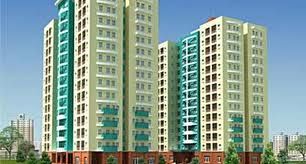Easier Foreign Ownership Likely To Revive Property Market
A Construction Ministry recent proposal on creating more favourable conditions for foreigners to buy property is considered a step in the right direction to attract stronger foreign investment inflows.
Most foreigners living and working in Ho Chi Minh City are forced to rent a house because they fail to meet the strict regulations to own a house.
In Vietnam those regulations require a foreigner to have a 6-12 month visa, be married to a Vietnamese citizen, have a university degree, and make significant contribution to the national development.
 The Construction Ministry has suggested easing some rigid regulations on house purchase for foreign immigrants into Vietnam in the draft law on housing submitted to the ongoing 8th session of the National Assembly (NA).
The Construction Ministry has suggested easing some rigid regulations on house purchase for foreign immigrants into Vietnam in the draft law on housing submitted to the ongoing 8th session of the National Assembly (NA).
Living in Vietnam for more than four years, Troy Griffiths from Australia, who is a deputy executive director of Savills Vietnam, has to rent a house in Thao Dien ward, HCM City’s District 2 at a price of more than US$1,000/month because he has not yet met the requirements for a foreigner to gain possession of a private property in Vietnam.
Troy Griffiths says he has not bought a house due to strict regulations that limit access to bank loans for foreigners. Moreover, over the past two years, interest rates have remained rather high.
At present, Vietnam’s improved considerably macroeconomic situation has helped lowered bank interest rates, widening foreign property ownership rights in Vietnam, he notes.
Marc Townsend from the UK, who has been working in Vietnam for 11 years, is allowed to buy a house in Danang city as soon as he marries a Vietnamese citizen.
He explains to buy a house in Vietnam, you need to have a job and live in the country. Townsend says he hopes the Vietnam government will allow foreign investors who have an immigration visa to buy a house.
Marc says in other regional countries like Thailand and the Philippines, foreigners can buy 30-50% of a housing project as long as they can afford the purchase price.
Five years after Vietnam began a pilot project allowing foreigners buy property; only 126 out of 80,000 foreigners have qualified to purchase houses, mostly in Ho Chi Minh City and southern provinces.
Of them, 108 people have married Vietnamese citizens. Five others also bought a flat but they were not allowed to lease or sell it to a third party.
Le Hoang Chau, Chairman of the HCM City Real Estate Association (HoREA), showed his strong support for the draft law on housing. He affirmed the need to provide the best possible conditions for foreigners to buy a house in Vietnam.
According to the draft law, foreigners immigrating into Vietnam can buy a flat, house or villa in any housing project that the Government doesn’t ban.
Foreigners are allowed to buy up to a maximum of 30% of the flats in a housing project. They also can buy as many as 250 houses or villas in the same ward.
The more open policy on property market is considered a form of export. Instead of shipping products such as cement, steel and guest workers abroad, the country can earn a large amount of hard currency by making it easier for foreigners to buy houses.
Dr. Le Ba Chi Nhan, a real estate expert, said foreigners who want to own a house in Vietnam just need to immigrate into the country. This will help to lure more cash inflows into the local real estate, which has been frozen for years, he added.
Opening up the market to foreign buyers is suitable with the current integration trend. However, it is essential to pay attention to Vietnamese low-income earners who are in need of accommodation.
Most NA deputies at the ongoing session agreed with the draft law, and expressed their hope that new regulations would soon be adopted.
Source: VOV/VNN
